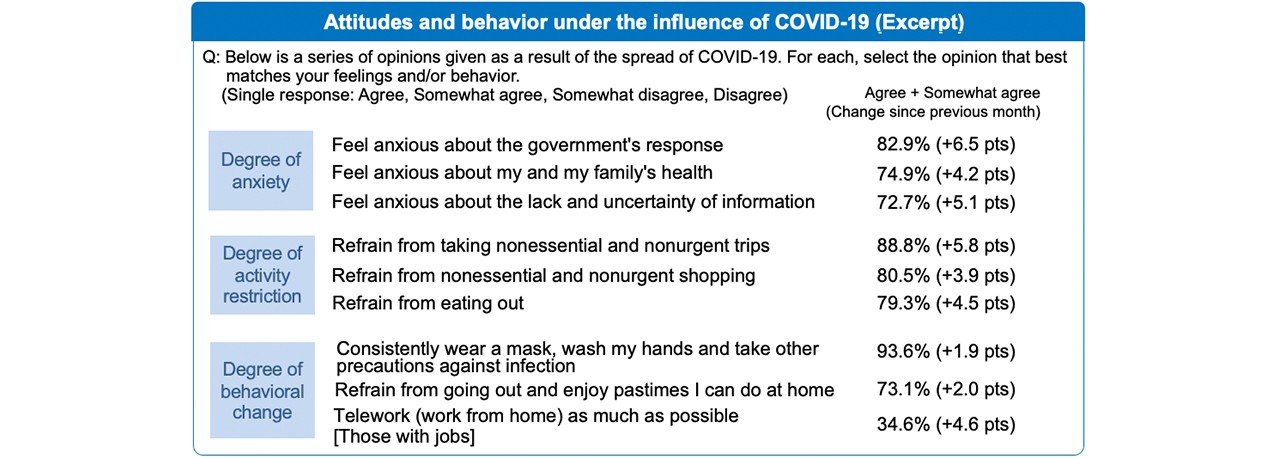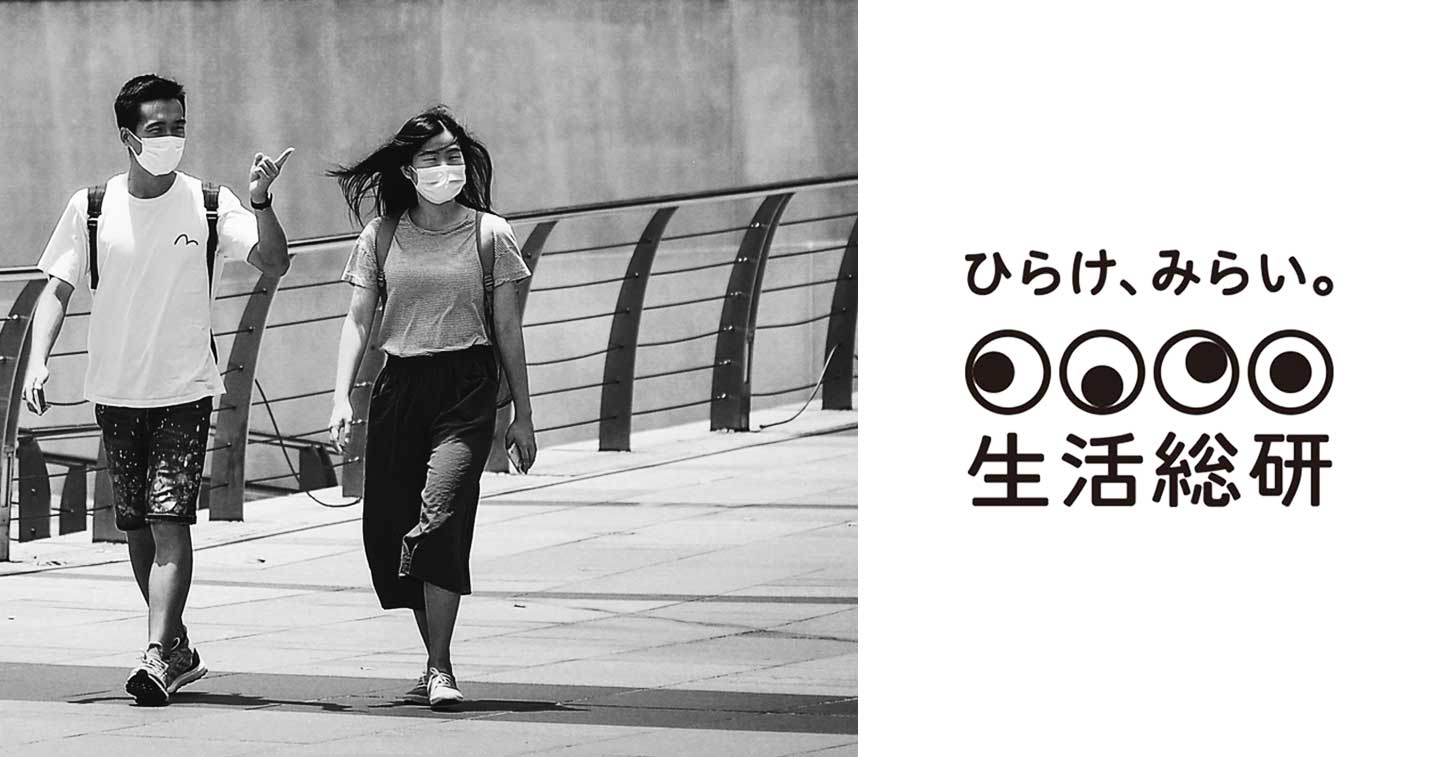Tokyo, Japan – Hakuhodo Institute of Life and Living, a think tank of Hakuhodo Inc., in August 2020 conducted its fifth “Survey of Sei-katsu-sha Concerning COVID-19” to understand sei-katsu-sha’s attitudes and behaviors as the novel coronavirus has spread. The survey was conducted August 3–6, 2020 in the Greater Tokyo (Tokyo, Kanagawa, Chiba, Saitama and Ibaraki Prefectures), Greater Nagoya (Aichi, Mie and Gifu Prefectures) and Hanshin (Osaka, Kyoto, Hyogo and Nara Prefectures) areas, targeting 1,500 males and females aged 20–69. Some questionnaire items have been surveyed since March. See p. 15 for the survey outlines.
When we asked sei-katsu-sha to rate their freedom of life under current circumstances if their normal life prior to the spread of COVID-19 rated 100 points, the result was 54.3 points. This represents a drop of 7.1 points since July, the figure the same as it was in April. Coronavirus cases increased again from July to August. With daily news reports of the increasing case numbers, Tokyo’s renewed request for businesses to operate only between the hours of 5 am and 10 pm (announced July 30, implemented from August 3) and Aichi Prefecture’s declaration of a state of emergency (announced August 5, implemented from August 6), the Degree of freedom score turned down again after rising since June.

Moreover, when we asked about 41 items respondents may be feeling anxious about, activities they may be restricting and behaviors they may have changed as a result of the spread of COVID-19, scores for all Degree of anxiety items were higher than in the July survey. Not only did anxiousness about the economy and health rise, so did scores for Feel anxious about the government’s response (82.9%, up 6.5 points) and Feel anxious about the lack and uncertainty of information (72.7%, up 5.1 points). In Degree of activity restriction, too, scores for all items increased, including Refrain from taking nonessential and nonurgent trips (88.8%, up 5.8 points). In Degree of behavioral change, there were both increases and decreases in scores, with Consistently wear a mask, wash my hands and take other precautions (93.6%, up 1.9 points) increasing even further, and scores for indoor activities, including Refrain from going out and enjoy pastimes I can do at home (73.1%, up 2.0 points), increasing once again. Behavioral restriction had been easing from June, and there appeared to be a shift from “at home” to “outside,” but behavioral restriction increasing again suggests the trend is now returning from “outside” to “at home.”

This survey will be conducted regularly for the time being. (The survey content may be changed depending on changes in circumstances.)
Click here for more details on this research.








